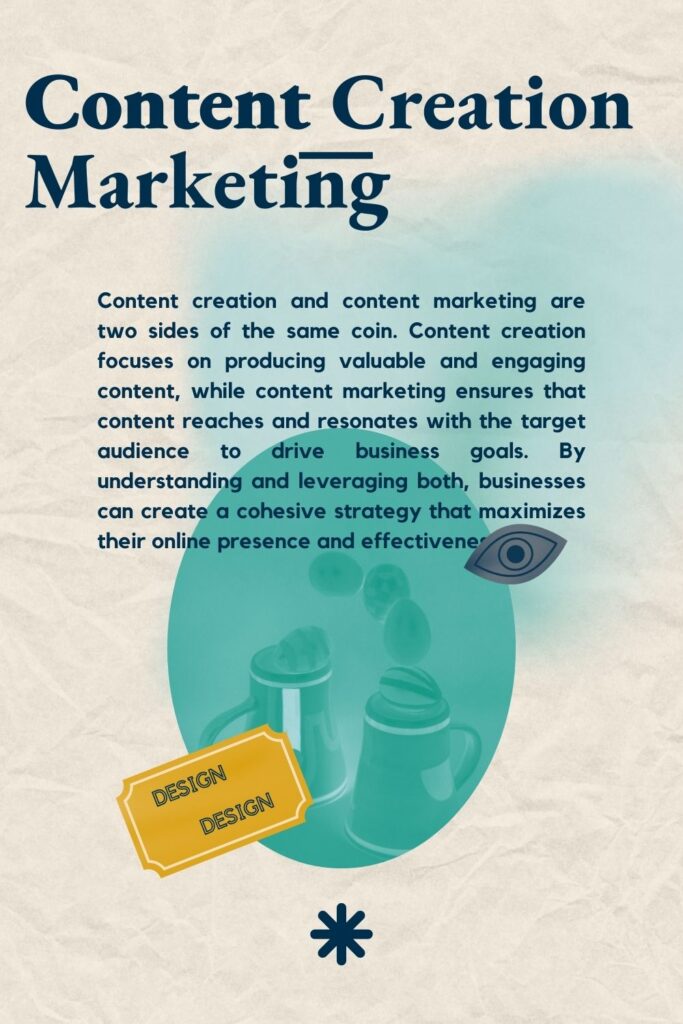In the digital age, content is king. It’s the driving force behind engagement, customer loyalty, and brand visibility. However, terms like “content creation” and “content marketing” are often used interchangeably, leading to confusion. While they are related, they serve different purposes and require distinct strategies. In this blog post, we’ll delve into the differences between content creation and content marketing and why understanding both is crucial for your business’s success.
Content Creation is the process of generating topics that appeal to your audience, creating written or visual content around those ideas, and making that information accessible to your audience as blog posts, videos, infographics, or other formats. Content creation is the foundation of any content strategy. It’s about bringing ideas to life and sharing valuable information that resonates with your target audience.
Key Aspects of Content Creation:
Content Marketing is a strategic approach focused on creating and distributing valuable, relevant, and consistent content to attract and retain a clearly defined audience — and, ultimately, to drive profitable customer action. Content marketing is about leveraging the content you create to achieve business objectives such as brand awareness, lead generation, and customer retention.
Key Aspects of Content Marketing:
1. Focus and Objectives:
2. Process and Strategy:
3. Metrics and Measurement:
4. Scope:
While content creation and content marketing are distinct, they are both essential to a successful digital strategy. Quality content creation is the foundation upon which content marketing strategies are built. Without high-quality content, even the best marketing strategies will fall flat. Conversely, without a strategic marketing approach, great content might never reach its intended audience or achieve its full potential.
In summary, content creation and content marketing are two sides of the same coin. Content creation focuses on producing valuable and engaging content, while content marketing ensures that content reaches and resonates with the target audience to drive business goals. By understanding and leveraging both, businesses can create a cohesive strategy that maximizes their online presence and effectiveness.
Invest in both content creation and content marketing to ensure your brand not only creates meaningful content but also uses it strategically to connect with and grow your audience.
